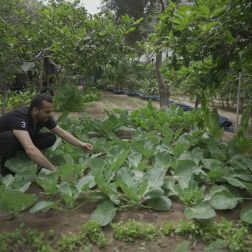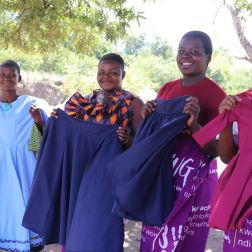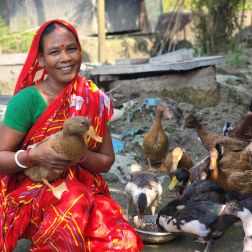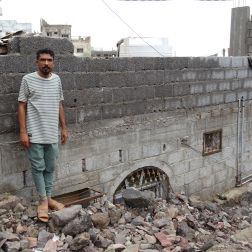- 4 mins read time
- Published: 24th July 2013
The joy of clean water in DRC
“There is no way we can thank you other than through song and dance,” says Victorine, a representative of the local water committee as we are welcomed in the remote village of Mambingi in the north eastern region of the Democratic Republic of Congo.
Up until June of this year, the community could only get water, the most basic of all human rights, from an unprotected local spring. They had to pass through thick forest vegetation where women felt vulnerable to get there and were often bitten by snakes attracted to the surrounding palm oil trees.
Today, thanks to our supporters at home and our local partners Hyfro, Mambingi has some 16 water points spread throughout the village managed proudly by local committees.
Importantly, the water is clean and safe. This reduces the risk of spread of preventable diseases such as cholera and dysentery, which regularly plague communities forced to drink whatever water may flow nearby.
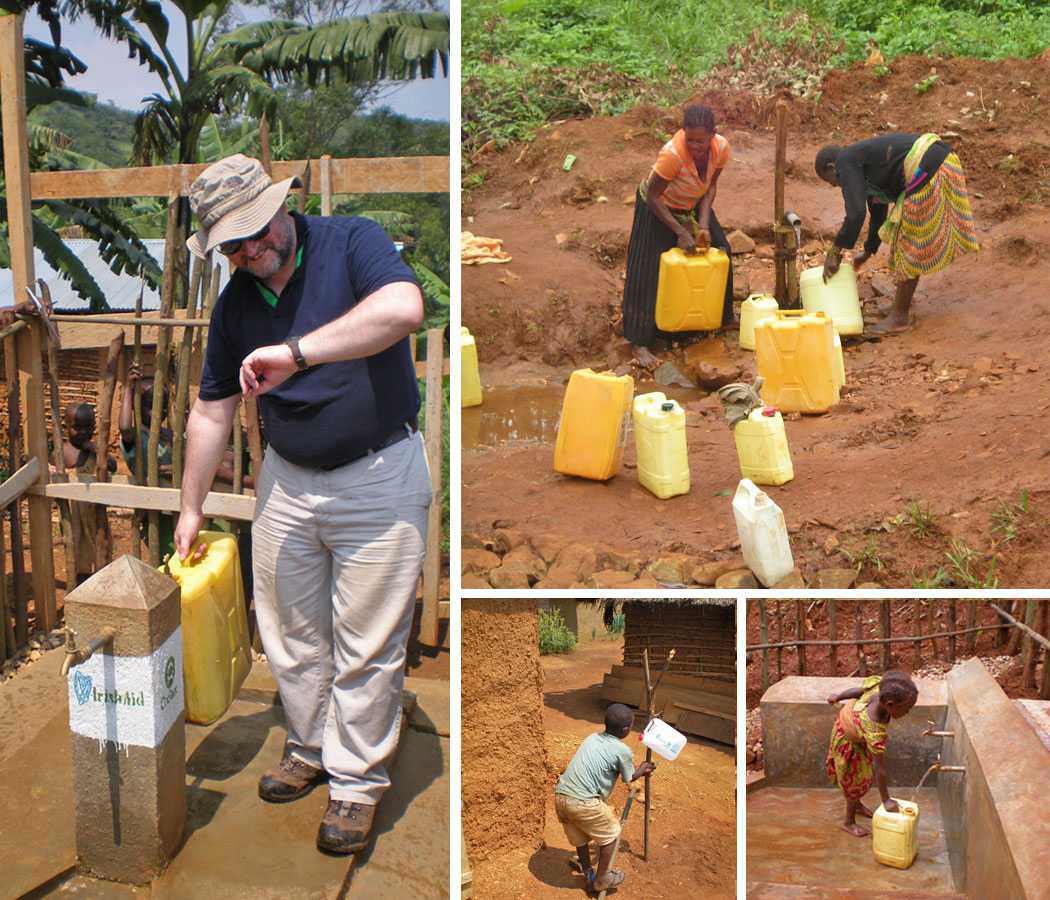
Clockwise from top: Oxfam Humanitarian Coordinator Michael O’Riordan measures the flow rate from a new water point constructed in DRC with the support of Irish Aid. Women in DRC often have to travel huge distances to collect water for drinking, cooking and washing. A young girl collects clean filtered water from the newly constructed water points in the village of Kahamba in DRC. A young boy demonstrates the use of simple innovative hand washing facilities made from locally available materials and a simple plastic container located next to a latrine. By pressing on the stick with his foot, the boy tilts the plastic container which causes water to flow shower like from holes made in the side. Good hygiene practice such as this greatly reduces the risk of spread of preventable communicable disease. Photos: Colm Byrne / Oxfam.
Victorine laughs at me when we ask how long she now has to travel to get to water. Leaning across and stretching out her hand, she says: “No time at all. It is right beside us.”
Mambingi is just one of 12 villages in the region which have benefitted this year from new water distribution systems with the support of Oxfam.
In the process, community members have learned the skills needed to build and care for not only these new facilities but also 577 newly constructed latrines which ensure the safe disposal of human waste without infection of local water sources. Critically, such new skills ensure community well-being not only now but their capacity and independence in doing so well into the future.
Unfortunately, not all communities in DRC are so fortunate. Twenty years of conflict in the country have claimed the lives of millions and resulted in repeated mass movements of people within the country and across its borders.
The conflict, a product of complex international, national, local, ethnic and tribal interests frequently related to competition for the country’s particular mineral wealth, has undermined growth and development. In turn, this has created a fragile political, social and economic context where most people fail to benefit from the country’s rich natural resources and where the reach of state services such as water, health and agriculture is limited if present at all.
Not long after meeting Victorine, as we prepare to leave the region, word reaches us that still more fighting has broken out and that tens of thousands of people only a few hours’ drive away have been forced to flee across the border to Uganda. Yet another tragic event in the history of DRC where life, like the water that sustains it, remains as precious as ever.
Colm Byrne is Oxfam Ireland’s Humanitarian Manager.
